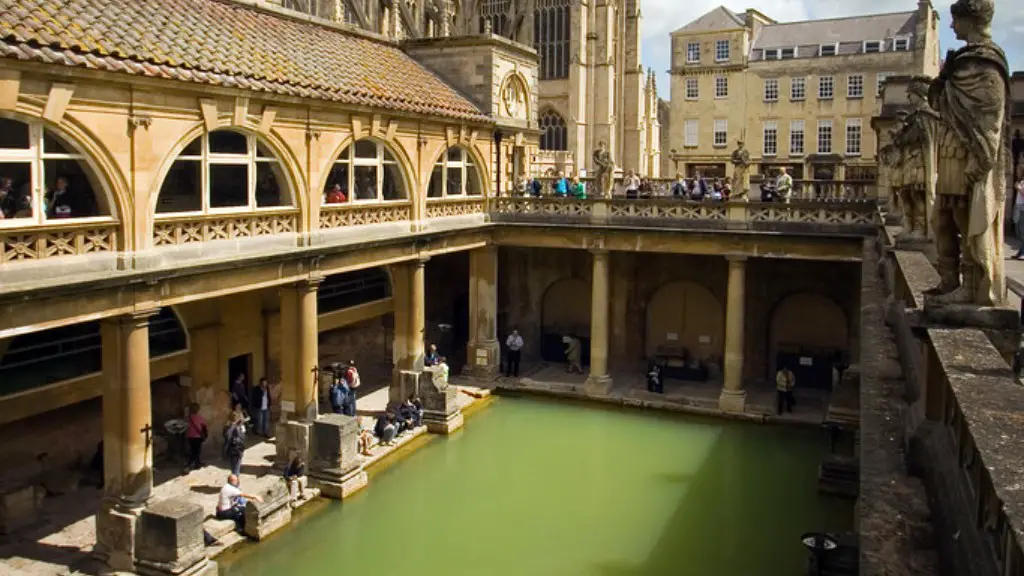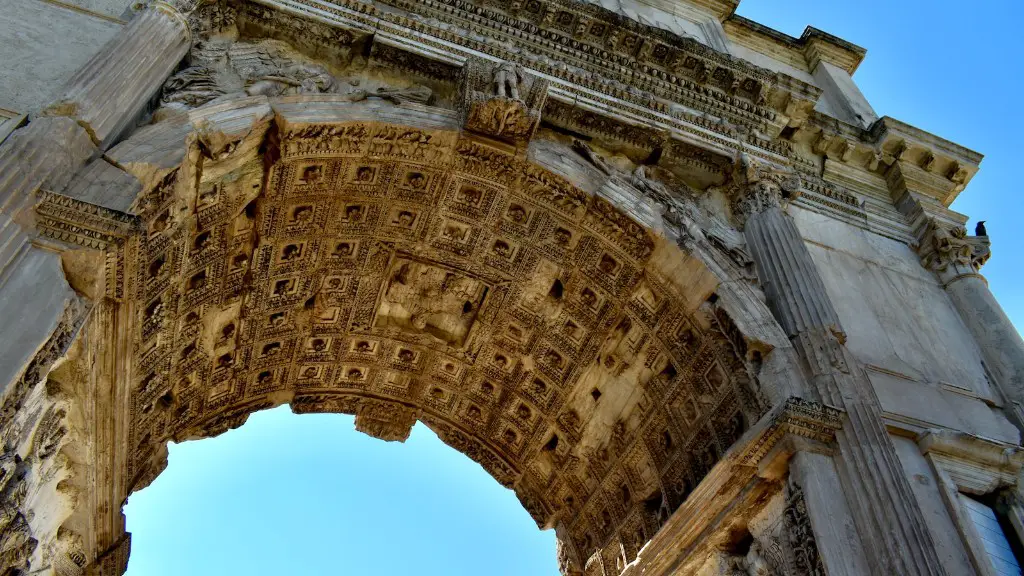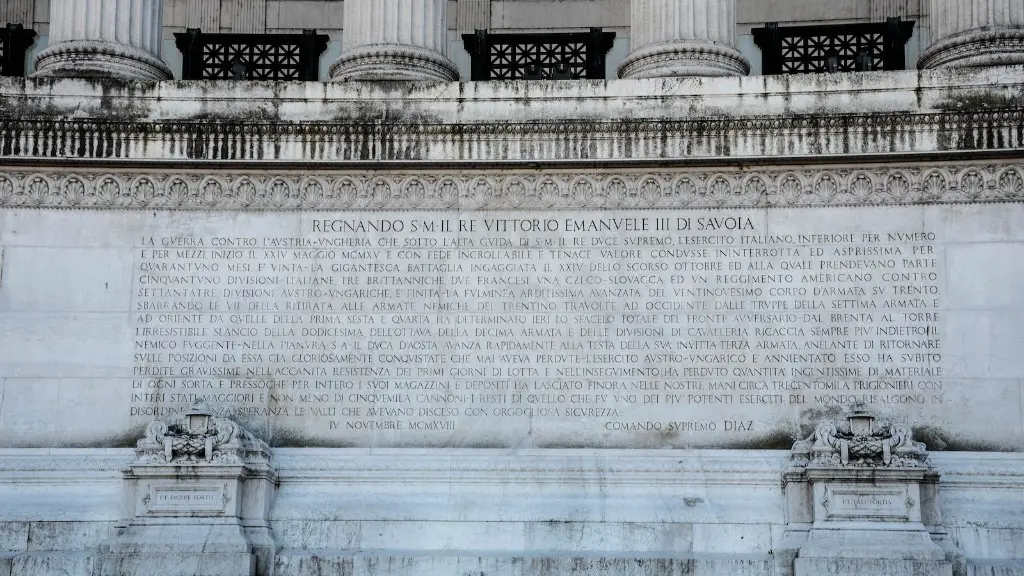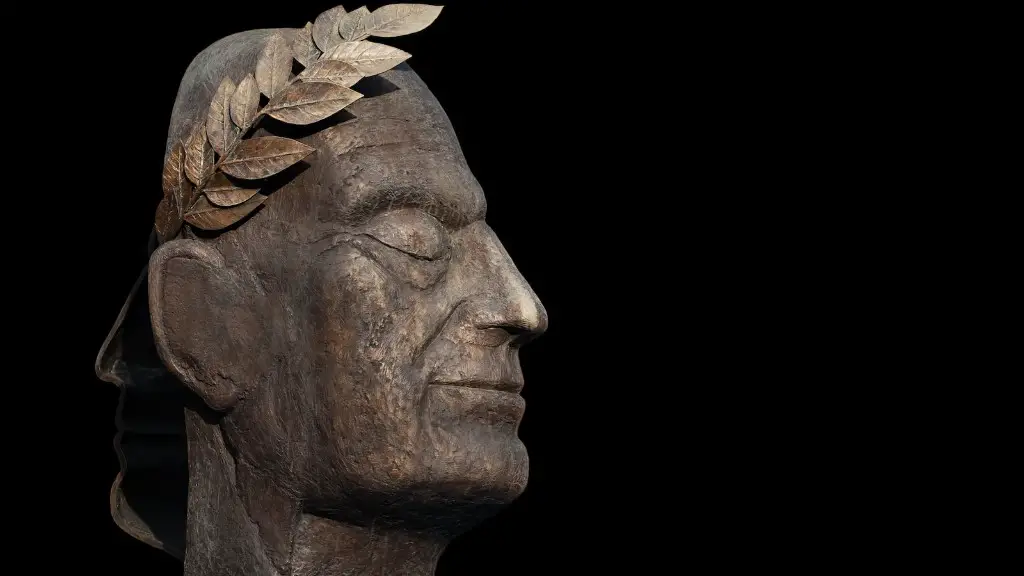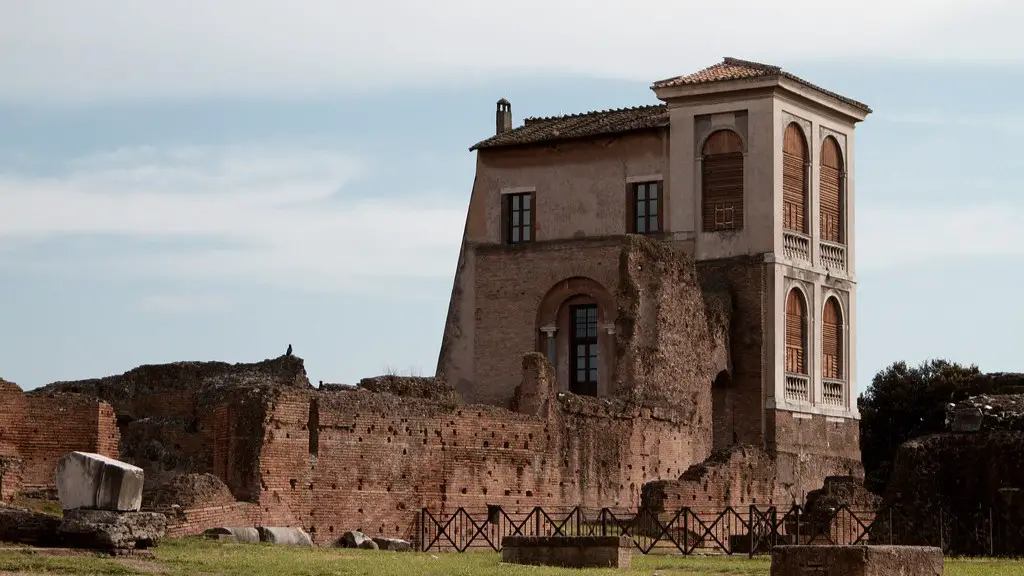The Praetorian Guard was an elite corps of soldiers in the Roman army during the height of the Roman Empire. They were a part of the Roman military, responsible for protecting the imperial family and keeping order in the city of Rome. The Elite Guard served as the personal bodyguards of the Emperor, a post which expanded over time as emperors began relying on the Guard more and more for their political power.
The Praetorian Guard was established by Augustus in 27 BCE as a small force of 9,000 troops, half of which were Italian and the other half from provincial areas of the empire. Augustus divided the force in 5 cohorts and gave each of them a distinctive title. From then on, the Guard played a major role in the politics of the Roman Empire.
The Praetorian Guard was typically stationed in or near Rome and was not expected to take part in military campaigns. However, the Guard would accompany the emperor on important expeditions. Furthermore, they had the right to declare who should be the successor of the current emperor.
The Praetorian Guard was regarded as one of the most powerful organizations in the ancient world. They were feared and respected by Roman citizens and had considerable influence on the politics, as they could either support or overthrow a ruler, depending on their political opinions. Furthermore, they had the power to initiate a coup and even assassinate the emperor. This happened on several occasions in the Roman Empire, with some guard members earning the title of “Emperor Killer” for their actions.
The Praetorian Guard enjoyed numerous privileges, including access to the imperial palace, free meals, free housing, and a generous cash bonus. They were paid almost three times the regular salary of a Roman soldier and were given a land grant and a lavish retirement award after twenty-five years of service. These incentives created a strong loyalty amongst the guard members and they often spoke on behalf of the Emperor in public.
The Praetorian Guard had a significant impact on the Roman Empire, both positively and negatively. On the one hand, they ensured the safety of the emperor and acted as a powerful deterrent to those who dared challenge the imperial authority. On the other hand, the Praetorians used their political power to overthrow rulers or appoint unworthy candidates and effectively created chaos within the Roman Empire.
Today, the legacy of the Praetorian Guard lives on in many forms. The term “praetorian guard” is still used to refer to domestic security forces or any organization that is entrusted with the duty of protecting its leaders. Furthermore, the methods and system of incentives used by the Praetorian Guard are still in use in many armies around the world.
Military Campaigns
The Praetorian Guard were primarily responsible for the protection of the Emperor and were not expected to take part in military campaigns. On some occasions, however, they were called upon to assist the army in battle. In these cases, the Guard acted as an elite force that was responsible for delivering the coup de grace to the enemy. The Praetorian Guard also occupied a key position in ceremonial events, such as triumphs and coronations, where they were garbed in glistening armour and carrying brightly coloured banners.
The Praetorian Guard played a role in several decisive battles during the Roman Empire, such as the Battle of Actium, in which they provided a crucial support to Octavian. Furthermore, the Praetorians played an important part in the Battle of Philippi, in which Octavian and Mark Antony defeated Brutus and Cassius, effectively ending the Republic and paving the way for imperial rule.
In addition to these battles, the Praetorian Guard also provided logistical support for the Roman Army, including transport and supply service, as well as being a source of information, especially in times of civil war, when their loyalty to the emperor was highly valued.
Praetorian Prefects
The Praetorian Guard was directly under the command of the Praetorian Prefects. These individuals were responsible for the organization and administration of the Praetorian Guard, as well as the security of the emperor and his family. The Prefects were appointed by the emperor and often had considerable power, becoming political advisors and even co-rulers in some cases.
The position of Prefect was highly sought after and those who held the post often wielded considerable power, particularly in the later years of the Empire. One of the most famous Prefects was Sejanus, who plotted unsuccessfully to overthrow the Emperor Tiberius in the Roman Senate. He was later apprehended and put to death.
The Prefects also had a direct influence on the political and social life of the Empire, influencing appointments and regulations. Furthermore, they had the power to appoint and remove generals as well as to mobilize the Guard in times of civil unrest or war.
Disbandment
The Praetorian Guard was disbanded in 312 CE by Emperor Constantine in order to curb the growing power of the Praetorian Prefects. It was replaced with a standardised military force, the Scholae Palatinae, which was answerable to the Emperor’s staff in Constantinople. The Praetorian Guard was considered to be too powerful a force to remain in Rome, as it posed a threat to imperial rule.
The disbandment of the Praetorian Guard was a significant event in the history of the Roman Empire as it marked the end of an era of chaos and provided a model to other empires that had become too dependent on their bodyguards for political power. Furthermore, it showed the power of the military in Roman society and the need for stability and order.
Legacy
The legacy of the Praetorian Guard lives on in several ways, through its influence on military organization, politics and culture. The term “praetorian guard” is still used to refer to elite security forces, while its organizational structure and system of incentives are in use in many modern armies around the world. The cultural impact of the Guard can be seen in literature, with references to the Praetorians being found in works by authors such as Virgil and Ovid.
The Praetorian Guard stands as a testament to the strength and power of the Roman Empire. Its legacy has stood the test of time and can still be seen in many aspects of modern life.
Recruitment
The Praetorian Guard was one of the few Roman military forces that was open to members of the public. Candidates had to be between the ages of 25 and 45, with excellent physical fitness and a military background. Furthermore, they were expected to have a good reputation and be of high moral character.
The recruitment process was rigorous and applicants had to pass several tests before joining the Guard. These included stamina tests, such as running, riding, and swimming, as well as physical exams and mental aptitude tests. Those that passed the selection process were rewarded with a land grant and the prestigious title of Praetorian.
The Praetorians were regarded as some of the most powerful and influential soldiers in the Roman Empire and their recruitment process reflected this. The selection process was designed not only to find soldiers of exceptional quality, but also to ensure loyalty to the emperor and discourage potential rivals.
Auxiliary Forces and Contingents
In addition to the core members of the Praetorian Guard, Augustus also created several auxiliary forces and contingents, such as the Equites Singulares and the Praetorian Cohorts. These forces were primarily used for military campaigns, and were often placed at the forefront of the Roman Army when engaging with the enemy.
The Equites Singulares were an elite cavalry force of 3,000 soldiers, which were personally chosen by the emperor and served as his personal bodyguard. They were elite horsemen and were equipped with the finest weapons and armour.
The Praetorian Cohorts were light infantry units that were used to protect the emperor during parades and public appearances. They were the fastest and most mobile Protector troops and often served as scouts to maintain the emperor’s safety.
The auxiliary forces and contingents created by Augustus played an important role in the Roman Army. These forces provided additional troops for military campaigns, further increasing the strength and power of the Roman Empire.
